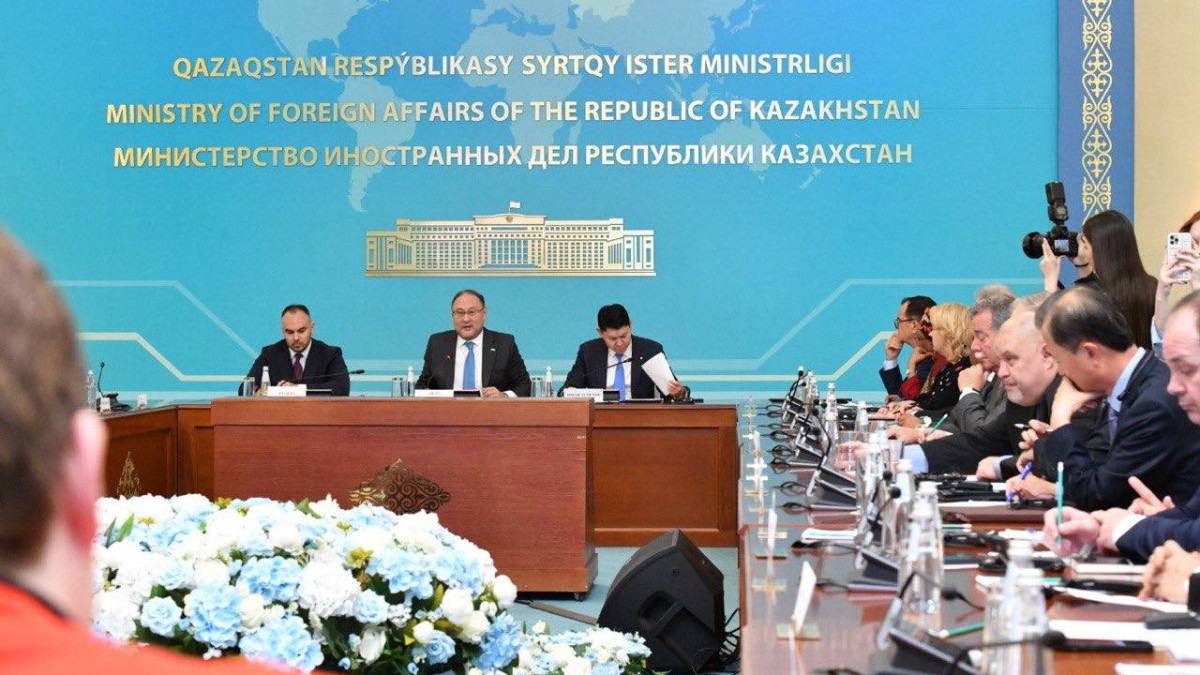
Progress on UN resolution 1325 presents at Kazakh FM

EL.KZ Информационно-познавательный портал
The Ministry of Foreign Affairs of the Republic of Kazakhstan, in collaboration with the Ministry of Culture and Information, held a briefing for the diplomatic corps dedicated to the implementation of UN Security Council Resolution 1325 and issues related to the empowerment of women in Kazakhstan, El.kz cites MFA.
Welcoming the participants, First Deputy Minister of Foreign Affairs Akan Rakhmetullin highlighted key advancements of implementing Resolution 1325 in Kazakhstan, including ongoing efforts to enhance women’s rights in the country.
Among the new initiatives, the Kazakh diplomat noted the training of female military advisors on gender issues and the protection of civilians at the Peacekeeping Training Center (KAZCENT), the promotion of women to leadership positions based on a gender-sensitive approach to professional development in the security and defense sectors, and the inclusion of female diplomatic personnel in international negotiations.
Vice Minister of Culture and Information of Kazakhstan Evgeniy Kochetov emphasized the promotion of gender issues in the socio-economic and public sectors, underscoring Kazakhstan’s commitment to the Global Forum “Generation Equality” (GEF) in 2021, where the country joined two Action Coalitions focused on combating gender-based violence and advancing economic justice and rights.
Additionally, representatives from the UN Women Regional Office for Europe and Central Asia, the OSCE, and relevant government bodies presented on the implementation of the National Action Plan in line with Resolution 1325.
According to Azamat Sisatov, Head of the Peacekeeping Activities Department of the Ministry of Defense, there are currently 6,802 women serving in the armed forces of Kazakhstan, including 863 officers. Among them are 31 colonels, 112 lieutenant colonels, 235 majors, 203 captains, 173 senior lieutenants, and 109 lieutenants.
Rimma Shakeyeva, a representative from the Ministry of Defense’s Peacekeeping Operations Center, shared her experience serving in the UN Mission for the Referendum in Western Sahara (MINURSO).
“Women participate in all areas of peacekeeping as part of military, police, and civilian personnel and have a positive impact on the environments in which peacekeeping operations are conducted, including fostering the advancement of women in peacebuilding and protecting women's rights. Women peacekeepers have proven that they are capable of performing the same functions as their male counterparts at the same level and under the same challenging conditions,” Shakeyeva stated.
The briefing emphasized the importance of international cooperation in strengthening the role of women in maintaining peace and security. Participants highly appreciated Kazakhstan’s international efforts to ensure gender equality and promote women’s rights at both national and regional levels.

